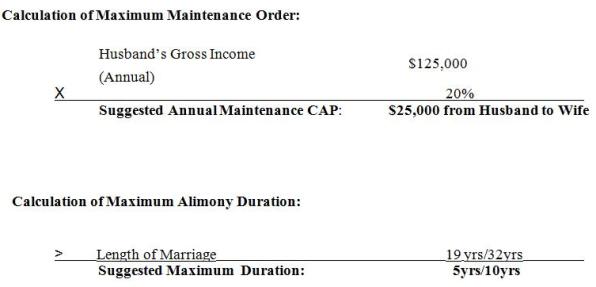-
Need Help with Your Divorce?
Our experience can make a difference!
Experience Matters When it Comes to Tackling Tough Cases!
Contact Nacol Law Firm for help with Child Custody, Child Support, Child Visitation, Parental Alienation, Paternity, Interstate Jurisdiction, Property Division and Business Asset Protection.
Dallas Divorce Attorneys, Mark Nacol and Julian Nacol
Based in Dallas, Texas, the Nacol Law Firm PC, traces its roots to the firm of Mark A. Nacol and Associates PC, established in 1979. The Nacol Law Firm team shares its experience on a variety of legal topics here. See our recent posts below.
Divorce Really Sucks (a view from the trenches), Part I
Psychological Impact Of Marital Dissolution On The Nuclear Family or
How does divorce make you feel?
Make no mistake, there are always two divorces. There is legal divorce, and there is emotional divorce. Although inextricably intertwined, they are distinct and separate with their own life and death, each fueling and affecting the other.
Aside from the loss of a spouse, child or parent to death, it has been said that divorce is the most egregious, emotionally debilitating experience a man or woman may have in a lifetime. The grief to each spouse, regardless of fault or equities, is very real, personal, deep and frequently damaging.
Aside from dispute resolution and collaborative law possibilities, which generally may apply to some people, the judicial adversary system is perhaps the most misplaced, illogical and painful method one might devise to dissolve a bond as culturally significant and historically necessary as the marital compact. Regrettably, it is what we have today to resolve marital conflicts.
The legal marriage is formed either by statute or common law. Statutorily one may secure their priest, Rabbi, or other authorized person to join the parties in union by purchasing a marriage license, taking a blood test and going through the formal procedures and ceremony. Additionally, you may, under statute, marry by filing forms with the state signifying the union. In Texas, flowing from the Mexican/Spanish influence on our statutes and the large distances between cities, the time and effort necessary to find a preacher in days gone by, two parties may marry by common law agreement. Such a marriage is binding upon agreement of the parties to be married (irrevocable present agreement), cohabitating together, and holding themselves out to the public as man and wife ratifying the relationship.
Regardless of which of the three procedures one takes to become married, once accomplished it is binding and can only be dissolved by divorce. Divorce means lawyers, the adversary system, the frequent unnecessary involvement of the children in the procedure, and significant grief.
It has been shown to be very constructive, useful, and therapeutic to entertain marriage counseling and/or divorce counseling prior to, during, and following a divorce procedure. There is no question that securing the services of a quality counselor, properly qualified to assist a husband and wife going through divorce, yields long-term benefits and faster recovery time, though the counseling often leads to serious emotional disruption and further pain before recognizing therapeutic results.
Once married, the divorce rate is over 50%. 95% of the population is married by age 55 versus 72% in 1970.The general life expectancy of a marriage is approximately 7 years, 8 months for the first marriage, and 7 years, 4 months for the second marriage.
The relative costs and expense in dissolving the marital relationship is directly proportional to the acceptance and the decision to divorce emotionally which can occur days, weeks, months, or years prior to the time you meet your attorney to commence the divorce proceeding, or never at all.
The Nacol Law Firm PC
Law office of Attorneys Mark Nacol and Julian Nacol
Dallas Divorce Attorneys
Serving clients in the Dallas – Fort Worth Metroplex area for over 30 years
Tel: 972-690-3333
Texas Divorce Spousal Maintenance Calculator
Texas is one of the most restrictive states when it comes to ordering spousal support; or “maintenance” as it is defined in the Texas statute. Texas House Bill 901 changing the spousal maintenance law in the Texas Family Code became effective for divorce cases on September 1, 2011. The bill revised the conditions that establish eligibility for spousal maintenance, commonly referred to as alimony and changed the factors required to be considered by a court in determining the nature, amount, duration, and manner of periodic payments for a spouse who is eligible to receive maintenance.
The court that determines a spouse is eligible to receive maintenance shall determine the nature, amount, duration, and manner of periodic payments by considering all relevant factors, including:
(1) each spouse’s ability to provide for that spouse’s minimum reasonable needs independently, considering that spouse’s financial resources on dissolution of the marriage;
(2) the education and employment skills of the spouses, the time necessary to acquire sufficient education or training to enable the spouse seeking maintenance to earn sufficient income, and the availability and feasibility of that education or training;
(3) the duration of the marriage;
(4) the age, employment history, earning ability, and physical and emotional condition of the spouse seeking maintenance;
(5) the effect on each spouse’s ability to provide for that spouse’s minimum reasonable needs while providing periodic child support payments or maintenance, if applicable;
(6) acts by either spouse resulting in excessive or abnormal expenditures or destruction, concealment, or fraudulent disposition of community property, joint tenancy, or other property held in common;
(7) the contribution by one spouse to the education, training, or increased earning power of the other spouse;
(8) the property brought to the marriage by either spouse;
(9) the contribution of a spouse as homemaker;
(10) Marital misconduct, including adultery and cruel treatment, by either spouse during the marriage; and
(11) Any history or pattern of family violence, as defined by Section 71.004 of the Texas Family Code.
The maximum amount of spousal support that courts may award is the lesser of $5,000.00 per month or 20 percent of the payer’s average gross monthly income. This is the maximum amount of maintenance the court orders.
However, in all circumstances, the law provides that the Court shall order maintenance for the shortest reasonable period that allows the recipient to earn sufficient income to meet his or her “minimum reasonable needs” and as follows:
The Texas law mandates the maximum duration of support as follows:
Maintenance shall be paid for a maximum of:
• 5 years, if due to family violence conviction and marriage is under 10 years;
• 5 years, if marriage is between 10 and 20 years;
• 7 years, if marriage is between 20 and 30 years;
• 10 years, if marriage is 30 years or more;
except in the case of an incapacitating physical or mental disability, in which case the award may last as long as the disability.
In addition, the law allows the Texas Family Law Courts to terminate maintenance if the recipient “cohabits with another person in a permanent place of abode on a continuing, conjugal basis.”
Sample Calculation of Texas Spousal Support Maintenance:
NACOL LAW FIRM P.C.
8144 Walnut Hill Lane
Suite 1190
Dallas, Texas 75231
972-690-3333
Office Hours
Monday – Thursday, 8am – 5pm
Friday, 8:30am – 5pm
OUR BLOGS
- Divorce & Family Law (157)
- Addictions and Divorce (2)
- Asset and Property Division (15)
- Boomer Divorce (6)
- Child Custody (11)
- Child Support (13)
- Child Visitation (20)
- Children and the Divorce Process (3)
- Divorce Checklist (4)
- Divorce Mediation (1)
- Divorce with a Business (2)
- Domestic Violence (9)
- Grandparents Visitation Rights (2)
- High Asset Divorce (7)
- High Conflict Divorce (3)
- Interstate Jurisdiction (11)
- Parental Alienation (8)
- Parental Rights (3)
- Paternity (8)
- Prenuptial Agreements & Postnuptial Agreements (9)
- Preparing for a Divorce (7)
- Protective Orders (4)
- Social Media and the Law (2)
- Special Needs Children (4)
- Spousal Support (7)
- Texas Laws (5)
- Notices (2)
SEARCH
JOIN OUR NETWORK

Attorney Mark A. Nacol is board certified in Civil Trial Law by the Texas Board of Legal Specialization




